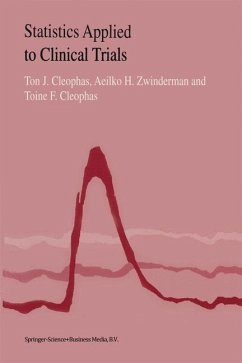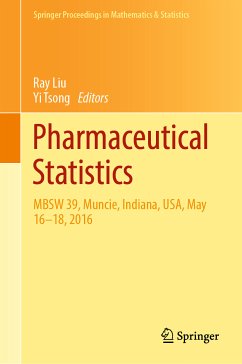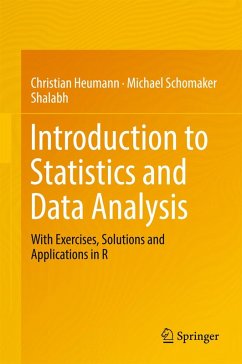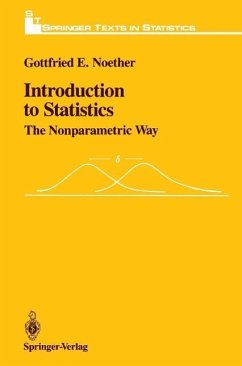
Statistics Applied to Clinical Trials (eBook, PDF)
Versandkostenfrei!
Sofort per Download lieferbar
60,95 €
inkl. MwSt.
Weitere Ausgaben:

PAYBACK Punkte
30 °P sammeln!
In 1948 the first randomized controlled trial was published by the English Medical Research Council in the British Medical Journal. Until then, observations had been uncontrolled. The intervening decades have seen significant improvement in the accuracy of trials. Today, clinical trial protocols are now routinely scrutinized by ethics committees, institutional and federal review boards, national and international scientific organizations, and monitoring committees charged with conducting interim analyses. The updated Third Edition of Statistics Applied to Clinical Trials explains classical sta...
In 1948 the first randomized controlled trial was published by the English Medical Research Council in the British Medical Journal. Until then, observations had been uncontrolled. The intervening decades have seen significant improvement in the accuracy of trials. Today, clinical trial protocols are now routinely scrutinized by ethics committees, institutional and federal review boards, national and international scientific organizations, and monitoring committees charged with conducting interim analyses. The updated Third Edition of Statistics Applied to Clinical Trials explains classical statistical analyses of clinical trials, but equivalence testing, interim analyses, sequential analyses, meta-analyses, and provides a framework of the best statistical methods currently available for such purposes.
Dieser Download kann aus rechtlichen Gründen nur mit Rechnungsadresse in A, B, BG, CY, CZ, D, DK, EW, E, FIN, F, GR, HR, H, IRL, I, LT, L, LR, M, NL, PL, P, R, S, SLO, SK ausgeliefert werden.












